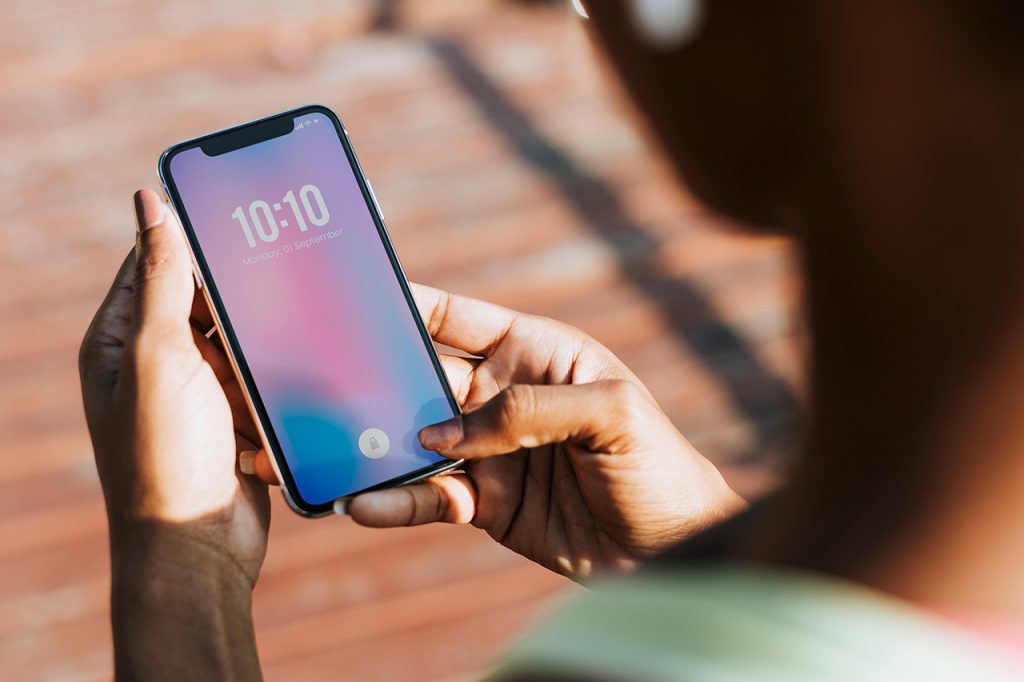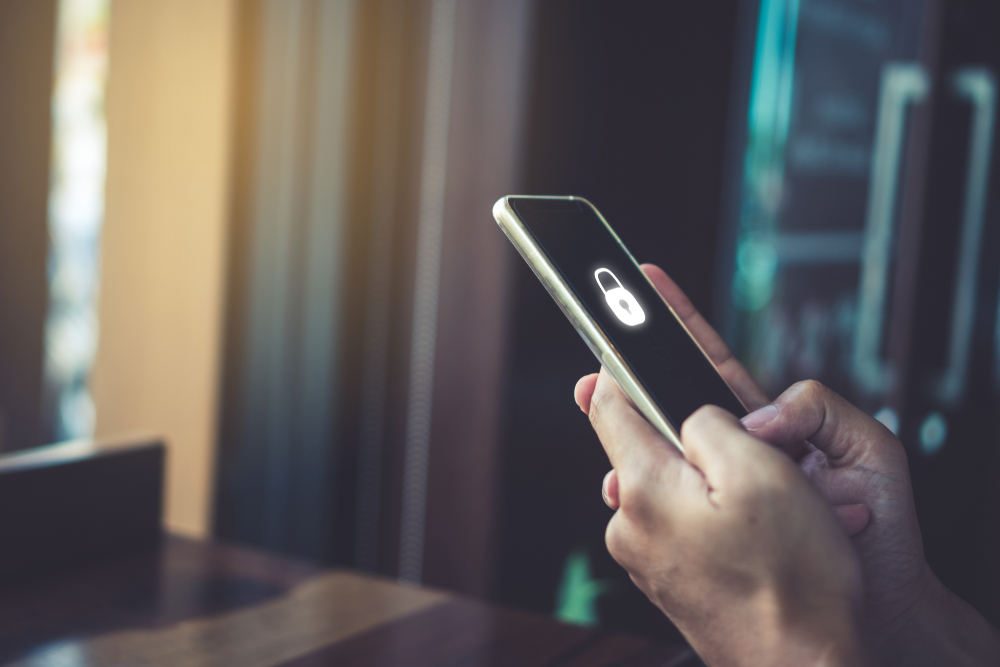In 2021, the average American adult spends almost four hours on their smartphone every day — and cybercriminals know it. Though plenty of malware targets computers and networks, an increasing number of malicious programs are developed to attack mobile devices.
Unfortunately, an abysmally low number of smartphone users do even the bare minimum to keep their mobile devices safe. Undoubtedly, you can find more than a few of your own practices in the following list of severe smartphone security mistakes.
Keeping the Phone Locked

Keeping your smartphone locked might not be convenient, but it is the bare minimum of security to keep your phone safe. Experienced hackers can typically get past a lock screen in a matter of minutes, but the typical criminal isn’t all that tech-savvy.
If someone snatches your phone from your pocket, they will likely be thwarted from accessing your personal details — including your mobile banking apps, social media, photos, and more — with a simple lock screen. By keeping your phone locked, you will prevent the majority of unauthorized access to your smartphone’s data. However, you should try to think of a unique passcode that isn’t easy to guess.
Updating Apps Regularly
Outdated applications are the easiest way for hackers to gain access to your devices. Over time, software develops gaps in its security, which hackers can exploit. You should set your smartphone apps to update automatically, which allows app developers to close those security gaps and keep cybercriminals out continuously.
Connecting to Public Wi-Fi
If you have heard it once, you have heard it a thousand times: Public Wi-Fi networks are not safe. Most networks allow all devices connected to that network to see and interact with one another, and public networks are no different. Because you can’t be certain that a bad actor is not connected to public Wi-Fi, you should try to avoid using such networks and rely on mobile data when you can.
If you do need to take advantage of public Wi-Fi networks often, you should consider getting a VPN for your smartphone, which will encrypt your phone’s data to keep it safe.
Using Shady Links

If you always tap on the links you receive in messages or emails, you are likely to get your smartphone in deep trouble. Links don’t always lead to legitimate sites. If you are wantonly following links, you are liable to end up on some shady websites, where you could accidentally leak login information or download malware.
It can be more difficult to differentiate legitimate mobile sites from illegitimate ones. To stay safe, you should try to navigate independently to any sites you want to visit instead of tapping on links.
Neglecting Security Apps

You wouldn’t dare use a desktop or laptop computer without trustworthy security software installed — so why are you using your smartphone unprotected? Antivirus apps for your phone will monitor your activity and keep you safe from most mobile threats, whether they come from your email, your messages, your social media, your apps, or your web browsing.
Keeping Bluetooth on
A new method of mobile attack called alternately bluejacking, blue bugging and bluesnarfing, involves infiltrating smartphones and other devices through open Bluetooth connections. If an attacker is within 30 feet of your smartphone and Bluetooth is turned on, they could easily steal your mobile data.
If possible, you should manage your Bluetooth settings to only connect to known devices; otherwise, you should keep your Bluetooth connection turned off until you need it.
Jailbreaking or Rooting
Jailbreaking and rooting involve giving a smartphone user access to the mobile operating system elements that they otherwise wouldn’t be able to see or interact with. On the one hand, this means users can gain functionality, like installing new ringtones or modifying how app icons look. On the other hand, jailbreaking cripples the built-in security of mobile operating systems, opening the door wide to hackers. It is best to avoid buying jailbroken devices, and you definitely don’t want to jailbreak your phone on your own.
If you are like most Americans, you rely on your smartphone for work and for play. Since your phone is such a staple in your life, the least you can do is keep it as safe as possible by fixing bad behaviors and finding security solutions.

